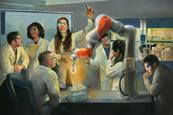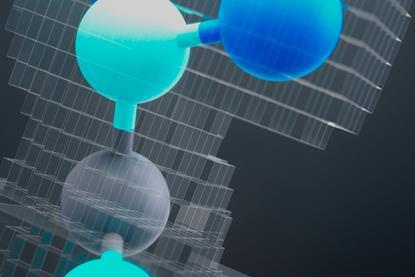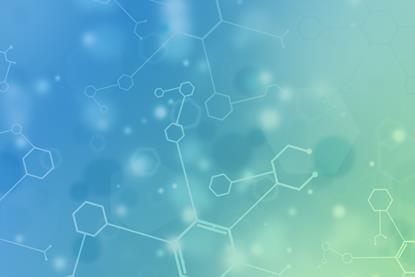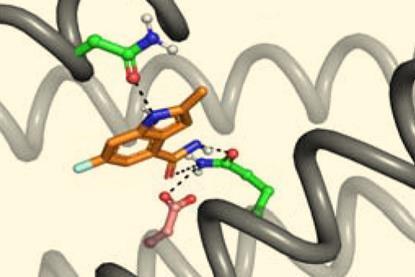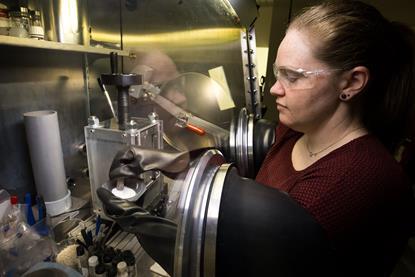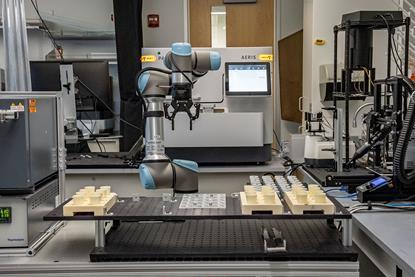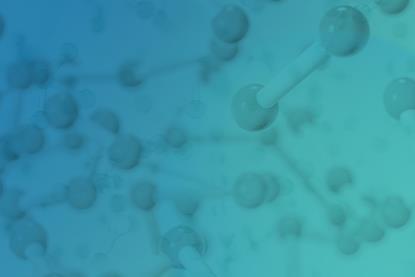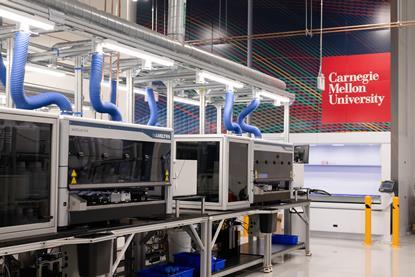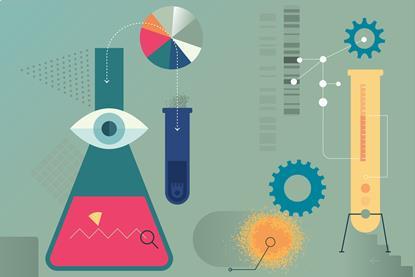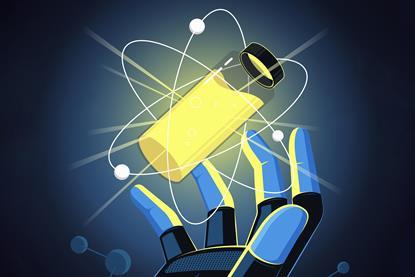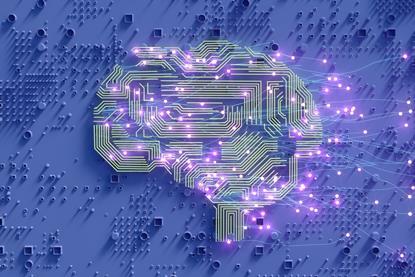AI and automation
In this collection, we explore the latest developments in artificial intelligence (AI) and automation, covering technologies and applications such as machine learning, robotics, laboratory automation and data analysis, and their impact on chemistry research, the profession, and chemistry-using industries.
Highlights
The robots revolutionising chemistry
Researchers working with automated systems are pushing the boundaries of what chemists can achieve in the lab, reports James Mitchell Crow
What does AI mean for chemistry?
Phil Ball looks at whether letting machines do our thinking for us will change our understanding of chemistry itself
How to automate your lab
Whether it’s robots, automation or software hacks, Nessa Carson finds ways for everyone to improve how they work in the lab
The psychology of our future with AI
It’s time to accept that digitalisation is changing laboratory work, and embrace the opportunity
Encoding creativity in drug discovery
Machine learning can complement and reinforce human intuition and experience
How will AI and automation change chemistry?
It’s going to change our lives. But it’s not clear in what ways
You don’t need coding to be a chemist
Writing your own software can be useful, but what matters is knowing how to use it
Robots in the lab – learn how automation can streamline your workflow
The future of lab automation is promising. Join us to find out answers to the most important questions, and to contribute your knowledge and experience to the discussion.
SmartChemistry brings the power of AI and machine learning into your lab
Digital chemistry technologies provide the tools to accelerate your research
- Webinar
AI meets chemistry: Standigm’s breakthrough with Synthia Retrosynthesis Software
Join us 26 September to discover how Standigm’s use of Synthia can accelerate AI-driven drug discovery
- Webinar
Accelerating density functional theory for faster calculations
Learn how to significantly speed up simulations on molecular structures with Accelerated DFT - join us live 2 October
- News
Should scientists be paid when AI chatbots use their work?
Two major scientific publishers have recently sold access to research papers to train AIs at big tech firms
- News
Disappointing AI judgment could have a ‘catastrophic effect’ on UK science
Warnings that loose legal definitions in case could also threaten innovation in chemistry
- Research
Algorithm predicts bitterness from mass spectra data alone
New tool could find use in food science and drug development
- Feature
Why are computational chemists making up their data?
‘Synthetic data’ is being used in chemistry, but is it something we should worry about? Hayley Bennett explains
- Research
Labs across the globe networked by AI discover state-of-the-art emitters for lasers
Demonstration shows how algorithms could organise timing and match specialist equipment to experiments
- Webinar
Expanding AI and next generation simulation tools to accelerate scientific discovery
Learn how new AI and HPC capabilities will enable novel solutions to complex chemistry problems
- Research
AI predicts vape flavours can break down into potentially harmful compounds when heated
Flavours may decompose into harmful carbonyls, alkenes and aromatics when heated
- News
Are we rushing ahead with AI in the lab?
Patience will be key to making machine learning indispensable – and practical – for chemistry
- Research
Algorithm designs proteins from scratch that can bind drugs and small molecules
Strategy could stop an overdose or produce an antidote to a poison
- Research
Brewing better Belgian beer with artificial intelligence
Machine learning tool can predict a beer’s taste and quality and which flavour compounds could improve it
- Research
AI could provide new approach to assessing chemical toxicity thresholds in aquatic organisms
Model showed excellent predicative ability and could cut animal testing in pollution research
- Research
GPT-3 trained and tuned to predict molecular properties
A better understanding of Smiles helps GPT-3 recognise chemically relevant patterns
- Article
Microsoft’s AI and high-performance computing system powers new battery discovery
Azure Quantum Elements platform speeds up discovery of solid-state electrolyte from decades to weeks
- Research
New analysis raises doubts over autonomous lab’s materials ‘discoveries’
Experimental and computational issues flagged as researchers conclude that a fully automated lab failed to make new materials
- Webinar
Accelerating materials discovery with HPC and AI
Explore how advancements in computing are accelerating the next frontier of scientific breakthroughs.
- Research
First GPT-4-powered AI lab assistant independently directs key organic reactions
Large language model takes control after being prompted to do Suzuki and Sonogashira couplings
- Research
Computer vision accelerates self-driving reaction workups from being automated to autonomous
Platform understands significance of solid residues, liquid levels, homogeneity, turbidity and colours
- Research
AI flies solo to optimise an organic photovoltaic device
High-throughput workflow guided by artificial intelligence identifies parameters to maximise power conversion efficiency
- Opinion
One year on from ChatGPT’s launch does it offer hope or hype for science?
Chatbots could help chemists but their limitations need to be understood
- News
Artificial intelligence could ‘revolutionise’ chemistry but researchers warn of hype
Survey of European scientists sees them stress the importance of human experts in chemical research
- News
Landmark intellectual property ruling could offer new opportunities for chemists working with AI
UK court’s decision that an artificial neural network can be patented could have widespread ramifications

